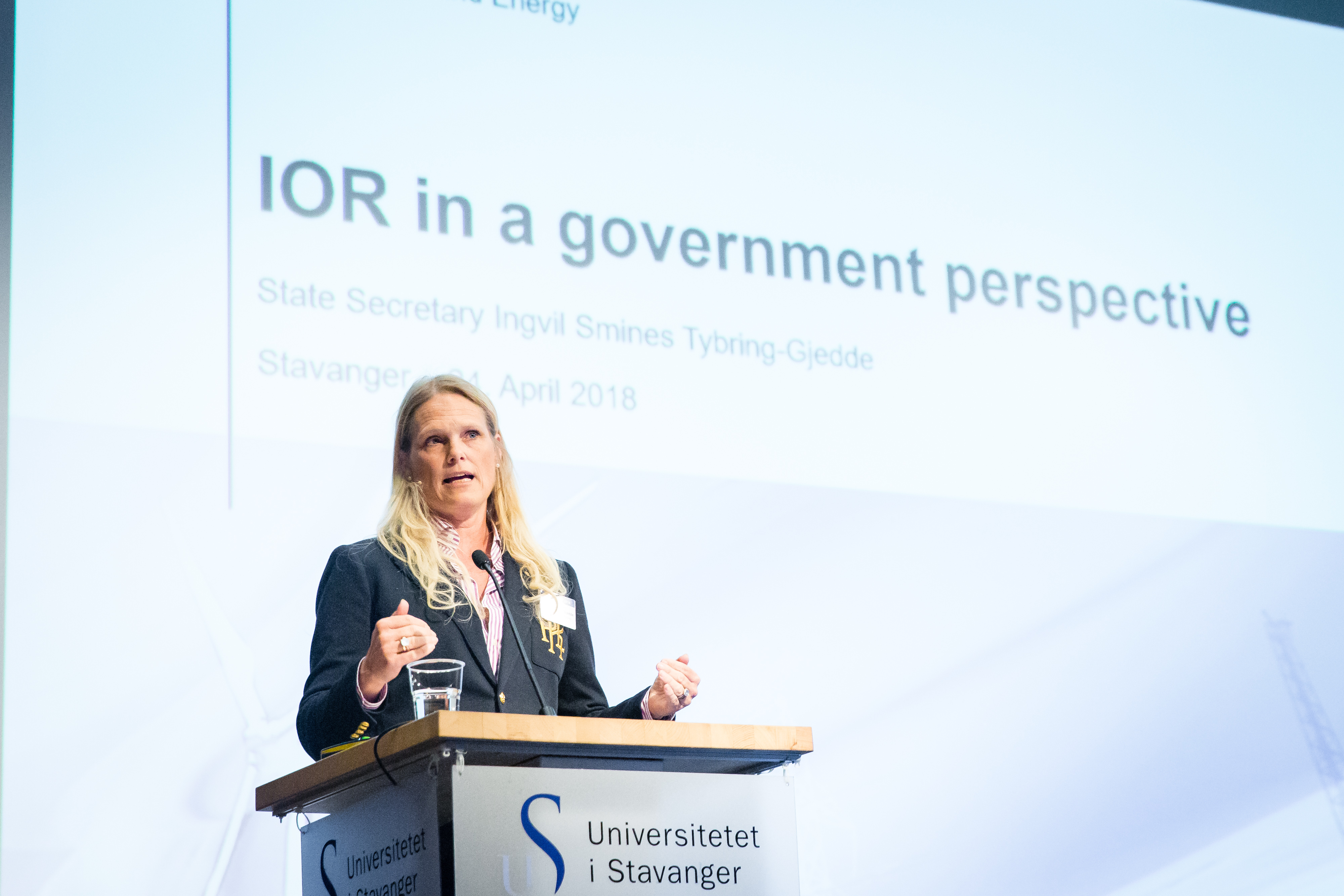270 participants caught up on the newest in IOR research at this year's big IOR event at University of Stavanger.

This year's conference was the 5th hosted by The National IOR Centre of Norway. 270 participants attended IOR NORWAY 2018, most of them from academia, but also industry and national authorities were represented.
Rector at University of Stavanger, Marit Boyesen, gave the opening speech, while Centre Director Merete Vadla Madland and State Secretary Ingvil Smines Tybring-Gjedde from the Ministry of Petroleum and Energy followed up talking about the future of IOR research, the many young talents that will lead the way and IOR in a government perspective.
Tybring-Gjedde gave praise to the Centre for the "excellent results in the midterm evaluation". She also mentioned the high activity level on the NCS, and gave the petroleum students present an optimistic message; it is still important to educate brilliant minds to the oil and gas industry.
After her speech, she took the time to talk to some of the students.
"We need many of you in the years to come," she said to the students from the SPE Stavanger Student Chapter.
From lab to field
Day one of the conference was summed up with a debate. Professor Reidar Bratvold from UiS, Professor Mojdeh Delshad from UT Austin and Erik Søndenå from Petoro attended. The debate was chaired by Tor Øyvind Skeiseid, who also led the conference, and Jan Ludvig Vinningland from IRIS and the Centre.
"How do we get the experiments out of the lab and in to the field?" Tor Øyvind Skeiseid asked the panel.
"There were more willingness to test new technology earlier. We need to take risk on projects where we don't necessarily see the income in 10-20 years from now," Erik Søndenå from Petoro answered.
"One of the reasons that companies are not investing in field tests, is the personal risk. You have to spend a lot of money now, for income that might not show up," Reidar Bratvold added.
Mojdeh Delshad said that the answer might be a number of smaller tests to reduce the risk.
"Smaller and cheaper tests with quicker response can be a solution," she said.
"Thought-provoking"
Professor Lawrence Cathles III from Cornell University summed up the conference at the end of day two.
"This has been a unique and very thought-provoking meeting at the mid stage of an ongoing project," he said refering to the midterm evaluation of the Centre.
"The Centre has made a great impact already. Now one big challenge remains: How to tie it all together in just 3 years," Cathles continued.
The renown Professor told the students to appreciate meetings like IOR NORWAY.
"This is about as good as it gets in a meeting," he said.
Published 19.05.2020